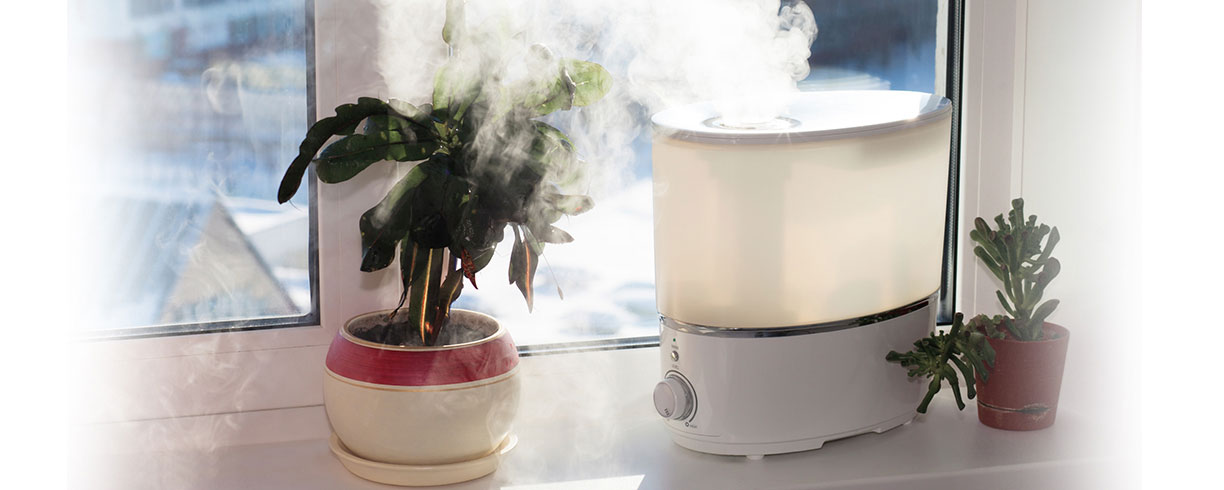Do you know the humidity level of your house? The ideal percentage of relative humidity (RH) indoors should be around 50% in the summer and 30% in the winter. Too much or too little humidity can lead to complications that are sometimes significant. The good news is that you can usually fix this sort of problem.
Do you know the humidity level of your house? The ideal percentage of relative humidity (RH) indoors should be around 50% in the summer and 30% in the winter. Too much or too little humidity can lead to complications that are sometimes significant. The good news is that you can usually fix this sort of problem.
Too much humidity
Condensation forming on the windows, mould stains on walls and ceilings, a musty odour: these are the main signs of excess humidity.
When relative humidity is too high, indoor air becomes polluted. This air pollution can cause various problems, ranging from damage to your belongings to health problems such as allergies.
Not enough humidity
If you get a shock every time you touch a doorknob in your house, chances are your relative humidity is too low. Constantly chapped lips or nose and throat irritation are other signs of too little humidity.
Because some types of heating systems dry out the air, it is common for humidity levels to be too low during the winter. In the long run, low humidity levels can cause your electronics and furniture to deteriorate, and seriously affect your comfort and health.
Do the test
To measure the relative humidity level in your house, you need to use a hygrometer. Mechanical or electronic hygrometers, sold in hardware stores, are relatively affordable. A single unit is usually enough for the whole house.
Because it’s important to make sure your readings are accurate, it’s a good idea to calibrate your hygrometer when you first buy it, and once a year after that. Calibration is an operation that’s easy to perform and lets you check how accurate your device is.
Fix any problems without delay
As soon as you notice that there’s a humidity problem in your house, it is imperative to find the source of the problem. Remember that poorly controlled humidity can cause major damage to your property and compromise the quality of the air you breathe.
A well-ventilated house, proper air circulation and good heat distribution generally resolve most humidity problems and will help your house be more energy efficient!
If you discover the presence of mould in your home, promptly take the necessary steps to eliminate it either yourself or with the help of a professional. Keep in mind that gradual damage caused by moulds is not covered under your home insurance contract.
Do you have questions about your protections? Call Customer Service to talk to one of our insurance agents.

























